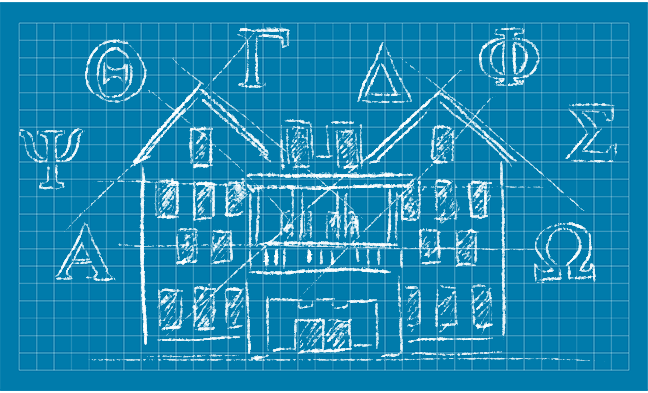In an effort to better fulfill the needs of the fraternity and sorority community on NC State’s campus, the university has engaged in a massive housing construction project to complete Greek Village.
While the project began over 10 years ago, completion is not near. Shelly Brown Dobek, director of Fraternity and Sorority Life, has been working on it since its inception. While NC State has had Fraternity and Sorority Life (FSL) housing on campus since the early 1960s, over the years those options became less viable, according to Brown Dobek.
“Lots of things have changed, building-wise from the 60s,” Brown Dobek said. “Fire alarm systems, sprinkler systems, just think of when they built rooms, there might’ve been one outlet in a room, and think of all the things that students bring today that they plug in.”
Renovating the existing buildings was expensive, taking an estimated $1 million dollars for every building, according to Brown Dobek, so a complete revamp seemed like a more viable option.
“The roads were in a place where they would need to be redone, the sewer systems were in a place where they would need to be redone,” Brown Dobek said. “It makes sense to start over, verses to try to piece around it.”
Brown Dobek explained that lots will be “ground leased” out to individual FSL organizations, effectively giving control to the tenant over construction, operations and expenses for that piece of land.
“The organizations then design, operate, own their own buildings,” Brown Dobek said. “So they are responsible then for what it looks like, how do they furnish it.”
Joshua Welch, associate director of Fraternity and Sorority Life, further clarified that costs for houses are not the university’s responsibility.
“The houses themselves that are built on university land are funded by solely the organizations,” Welch said. “So, the Kappa Delta house, for example, that was built solely with Kappa Delta fundraising.”
Brown Dobek emphasized that there was a big focus on making the village inclusive with the redesign. While traditional Greek village houses exist, there are also plans to build a set of townhouses and apartments. The former would house smaller organizations, while the latter could house a mix of people from different chapters.
On a project of this scale, Brown Dobek explained that cost is a major point of consideration. She mentioned that there has been roughly a cost escalation of 25 percent, compared to initial estimates.
“One of the things that I think is challenging is that, again, this project was developed many, many years ago, and so was the pricing,” Brown Dobek said. “As the time has moved way beyond anticipated, we’re having to go back and look at what it costs to do each of the phases. So the initial idea of cost in 2008 was very different than 2019 dollars.”
Because the organizations themselves are responsible for construction and design costs of their individual houses, NC State mainly has to focus on infrastructure costs, and even those are split roughly in the middle with the FSL organizations, Brown Dobek explained.
“Those costs are split between the organizations and the university,” Brown Dobek said. “The idea is across the entire project, not phase by phase, because otherwise, your smaller phases would have a very difficult time coming up with that kind of cash.”
In total, infrastructure costs are around $28.7 million, with about $17 million coming from NC State, according to Brown Dobek. The entire project is estimated to cost around $149 million.
Welch explained that the money contributed by the university can come from a variety of ways.
“The rents that are collected from university-owned properties are a source of funding for that,” Welch said. “There’s opportunities for us as a department to do some borrowing from the university.”
While the project was initially intended to be completed before the end of the decade, it is projected to be done around 2026. Brown Dobek said she is enthusiastic about the future of the village.
“I’ve worked on this project for a really long time, and I’m excited to see it moving forward,” Brown Dobek said.








